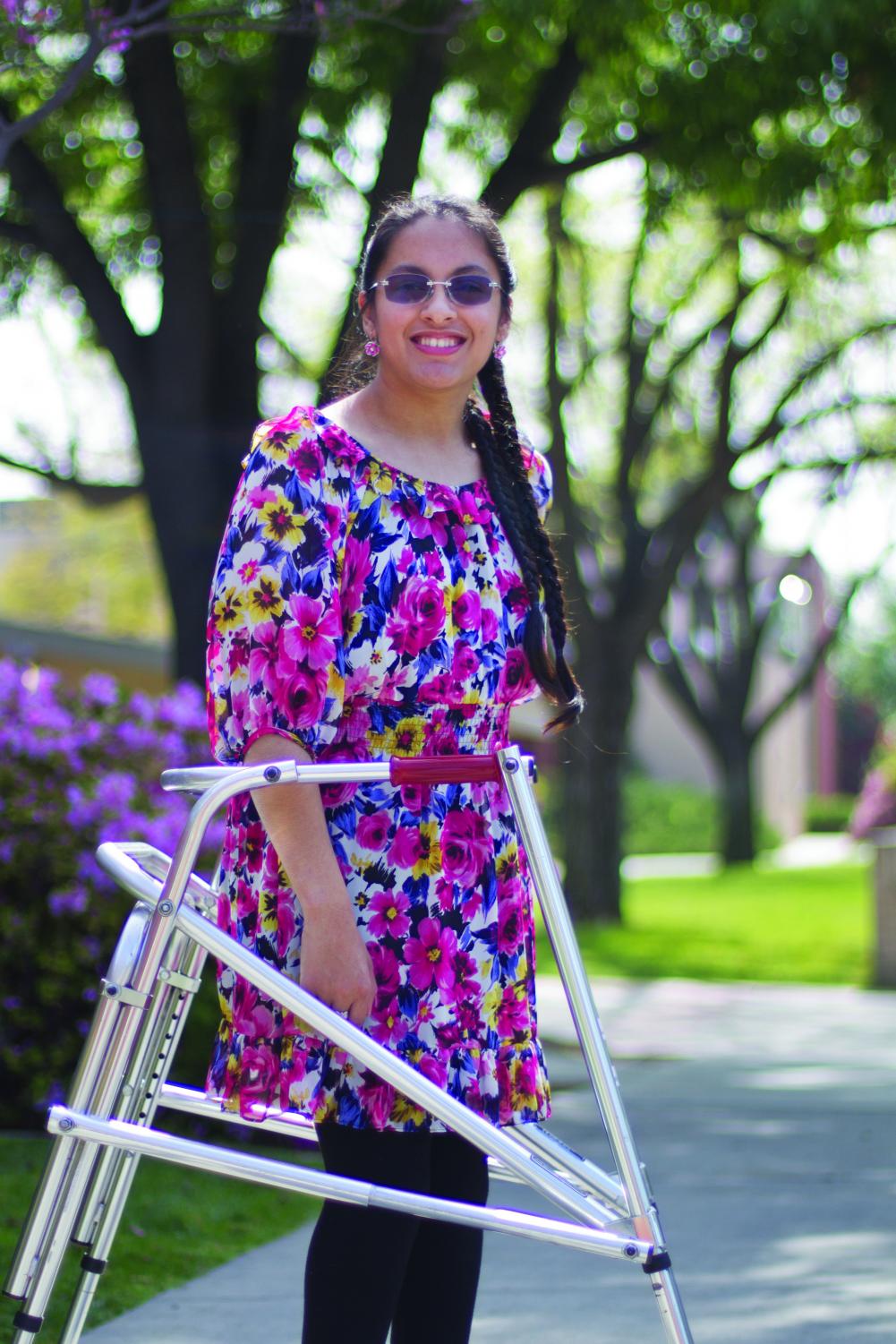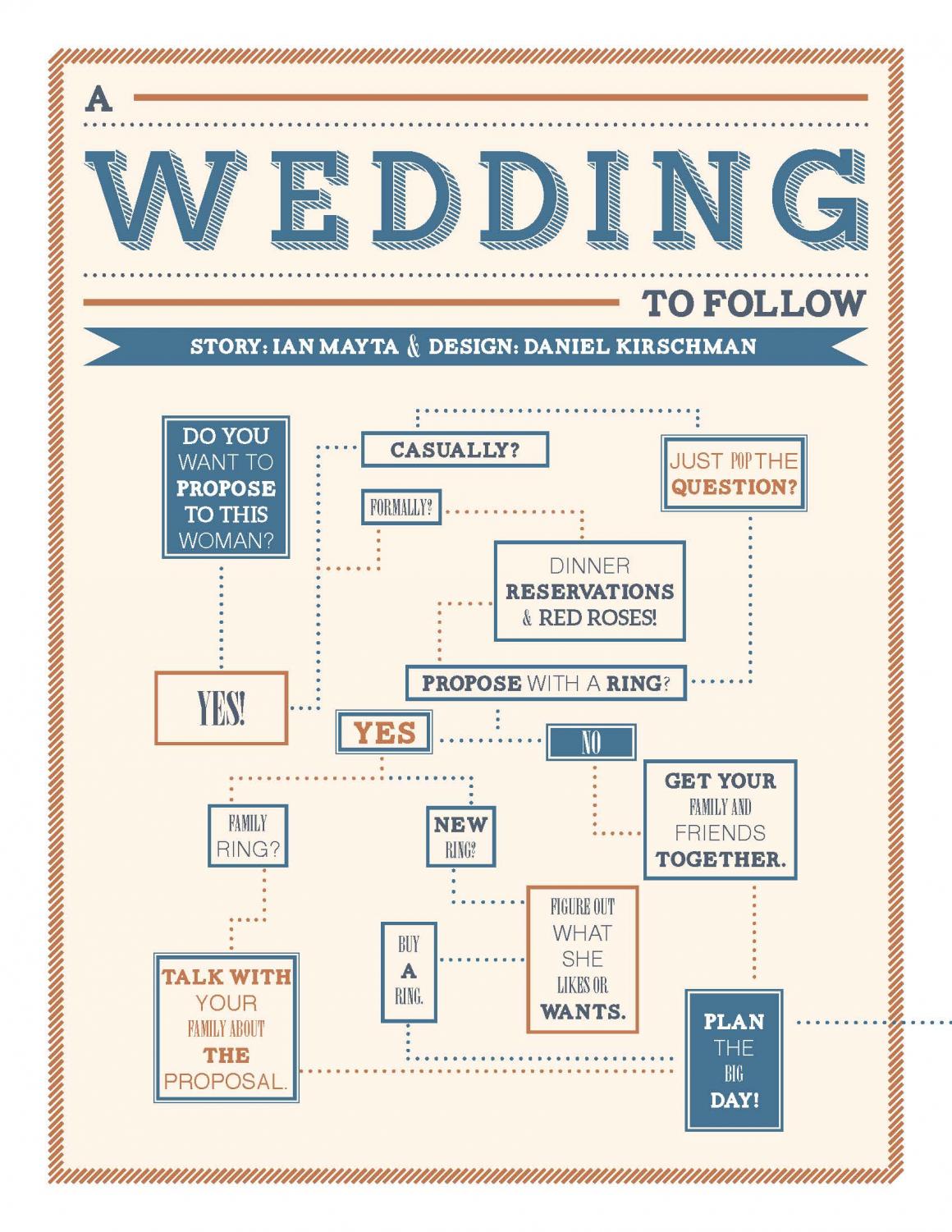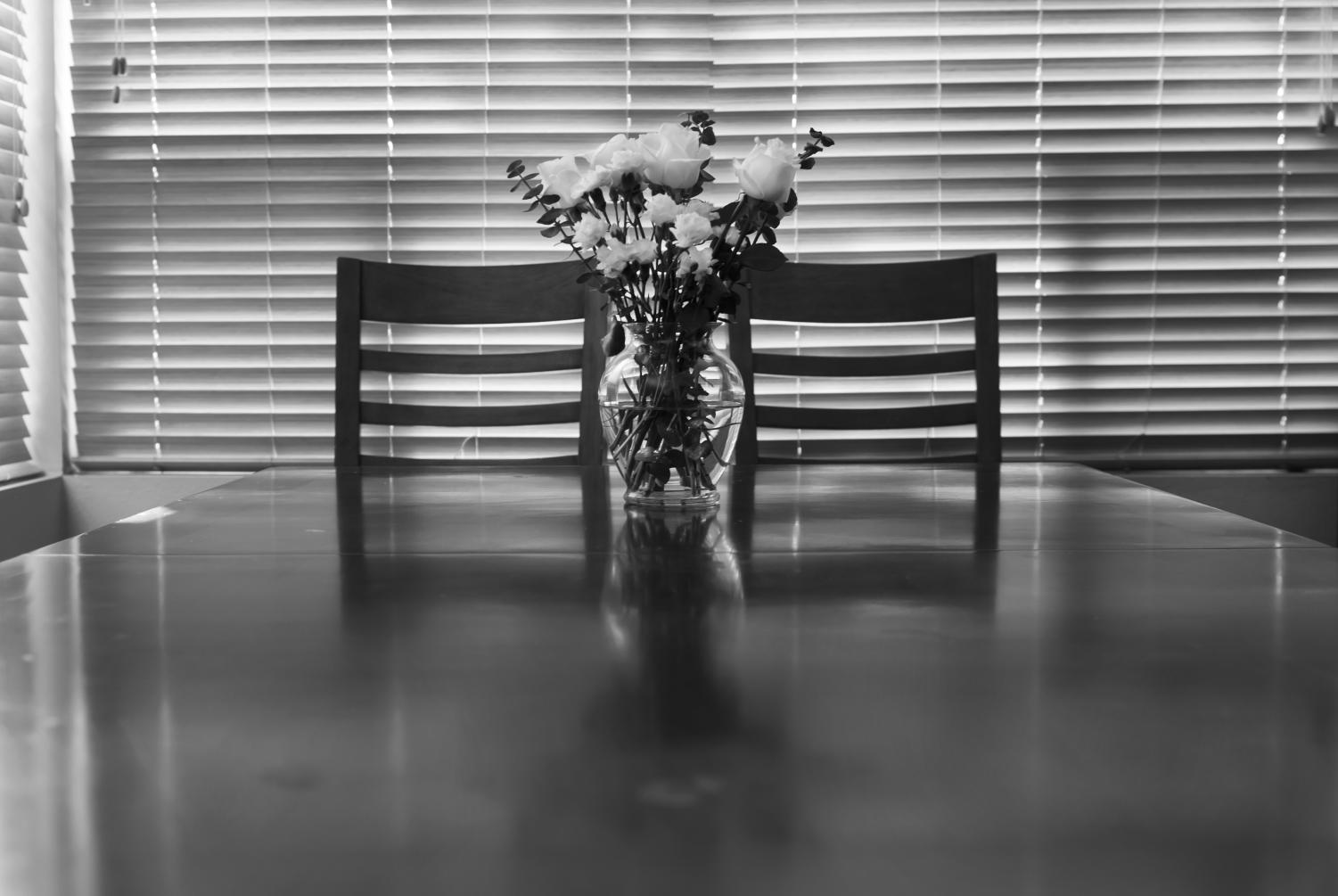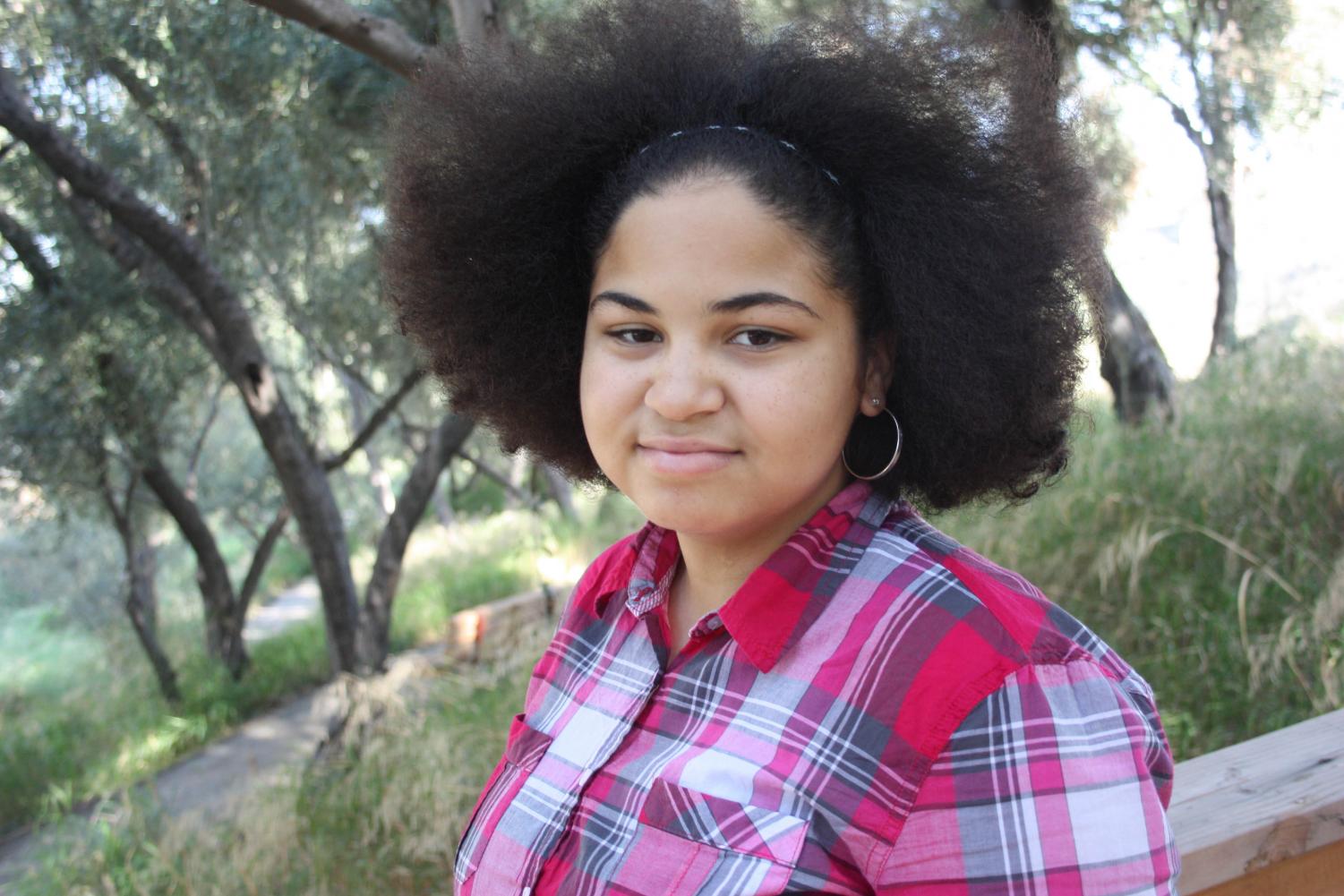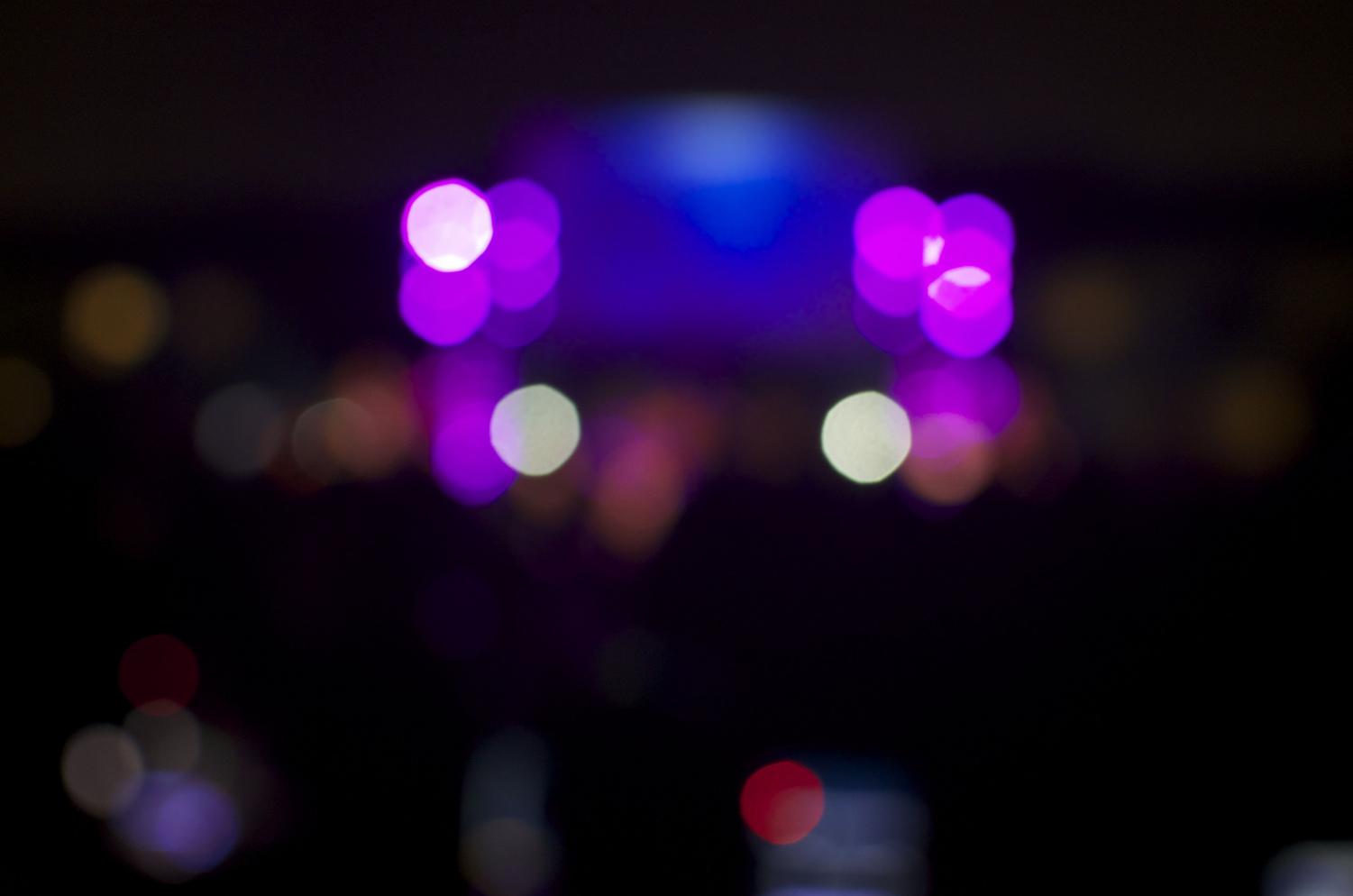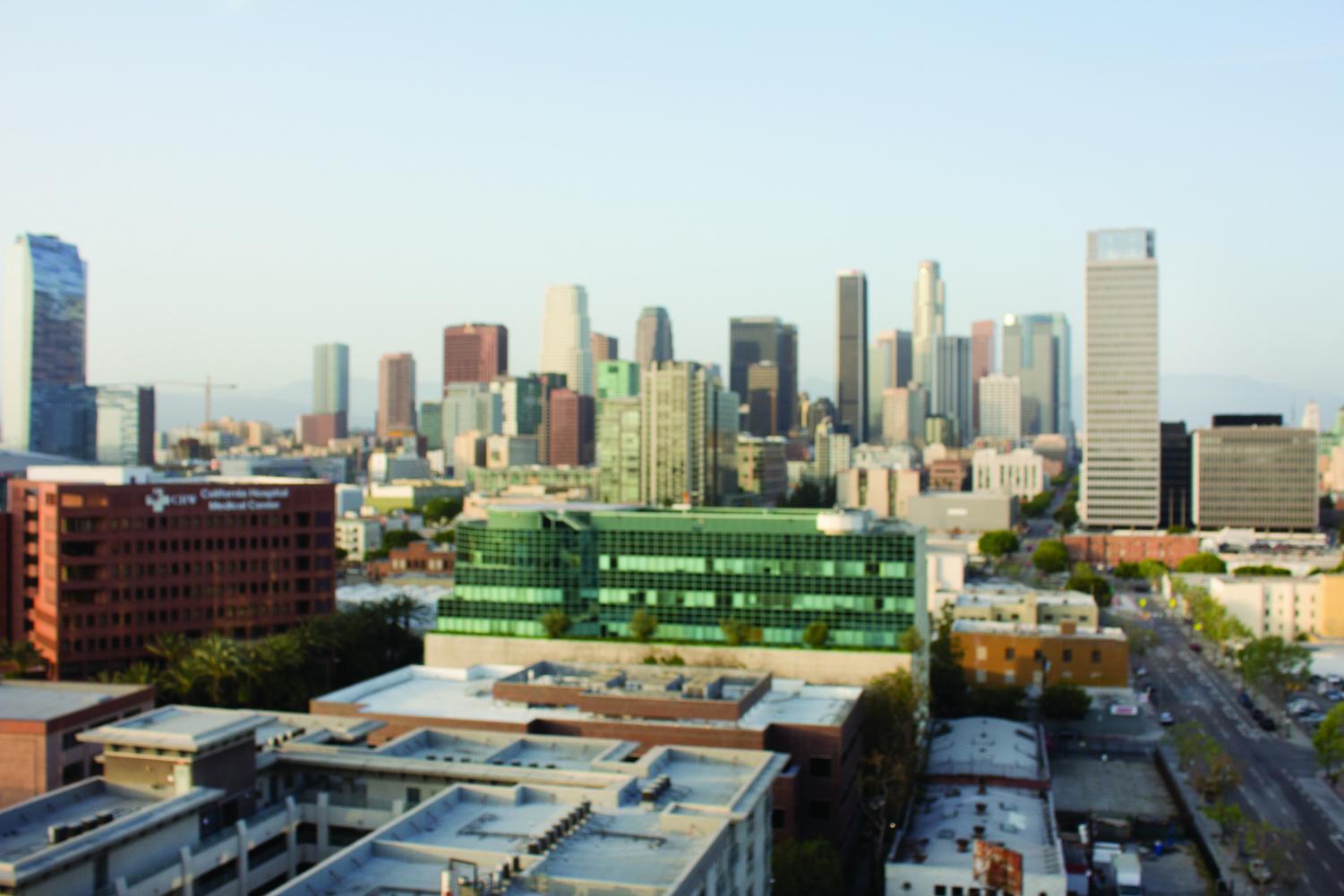Photography by Christina Bryson
Written by Sarah Huffman
Students often take full use of their bodies for granted. Instead of complaining about having only fifteen minutes to stop at the food truck for lunch between classes, Victoria Nuñez, a freshman biology major who suffers from cerebral palsy, has to plan how she’ll get to class on time carrying a backpack full of textbooks and using her walker. Cerebral palsy, a group of motor conditions that causes physical disabilities in development, particularly in body movement, has been a constant struggle for Nuñez. But instead of complaining, she has begun to look toward God.
She says she was able to seek God so he could help her overcome tough circumstances, such as “when you’re in bed for two months after 12 surgeries, staring out the window at the sky.”
“Some days, you just don’t want to be here,” Nuñez says about school. “Not because you don’t like school, but because it’s just another day of pain.”
While many students worry about their hair or clothes getting wet when it’s cold and rainy, Nuñez dreads the pain in her bones and the slow journey between classes that seem close, but with her walker and heavy backpack, often feel miles apart.
The Search for Acceptance
Another member of the Biola community who can speak to the difficulty of physical struggles is adjunct professor of journalism Anna Sinclair. Sinclair does not feel less fortunate than her co-workers or students, although she realizes that there is a difference. She was born a congenital amputee, which means one of her arms is missing a forearm and hand. Although there was no medical explanation for it at the time, doctors have since then discovered that in the womb, amniotic bands cut off her arm just below the right elbow, constricting and preventing any further growth.
Sinclair explains that everyone is looking for acceptance. Even students who have complete hearing, sight and use of their limbs struggle to be accepted. She says that it is important to embrace those differences.
“Embrace who they are and treat them like a regular person,” she advises, understanding exactly how it feels to be stared at and excluded. Since she was only 18 months old, Sinclair wore a prosthetic arm, to help learn basic tasks like crawling, getting dressed and eventually doing her own hair. But she admits that she primarily wore it because she felt aware of others. Wanting to make everyone else feel more comfortable, she wore the prosthetic because it made her feel professional and took attention away from her arm. She always knew that her arm drew stares, but quickly realized that how the situation was handled was up to her.
“I didn’t want it to define me,” Sinclair says about giving up the prosthetic. “I was ready to forego it and live in my own skin.”
By giving up the prosthetic, she drew much more attention, but instead of feeling sorry for herself, she took advantage of it and used those opportunities to engage in conversation. Her career in public relations has prepared her for communicating well, and she often uses her arm as a way to talk to others.
Identity Beyond Disability
Like Sinclair, Nuñez emphasizes the humanity of those with disabilities. “I wanted to be around people who wouldn’t see me for my disability, but for who I am,” Nuñez explains. This is what she encourages others to do as well. Instead of ignoring the person and simply seeing a wheelchair or walker, she advises people to “capture who they are in personality.” Instead of being defined by cerebral palsy or by her walker, Nuñez wants people to get to know her as a person, and to realize that although it may seem a little tougher, she is capable of doing anything that her peers can.
Katelyn MacIntyre is a senior vocal performance major who is just as competent as her peers. She is actively involved in Biola’s music department, singing in the chorale and acting as a member of chorale council, playing a role in the spring opera, and preparing for her senior recital. She also had an unforgettable experience studying abroad in Heidelberg, Germany, where she got to learn a new language, perform in beautiful and historic theaters and study under internationally acclaimed vocal performers and musicians. MacIntyre has enjoyed a full and productive four years at Biola, and never let the fact that she has a visual impairment hold her back.
In a Christian community, MacIntyre says she can tell that students and faculty alike want to help, but sometimes they just don’t know how. As a result, she says they either ignore her fully or overcompensate, which leads to an awkward tension.
“They want to serve Christ and they see helping me as a way to do it,” MacIntyre says. “I’ve been places where [non-Christians] are helpful, but it’s not from the same heart.” She says that while the expectation is that non-Christians are less willing to help, they often reach out. But they tend to help out of pity or obligation instead of from a compassionate heart.
Living In Community
With Biola’s missions mindset and focus on equipping students to be witnesses throughout the world and in the workplace, students often fail to notice the struggles happening right on our own campus. Christians often look abroad to impact God’s kingdom: child poverty in Asia, HIV/AIDS in Africa, human trafficking in India. These are important injustices that God calls us to fight for, but we should also remember those who live next door to us.
Those with disabilities are often overlooked or ignored. People tend to turn the other way or stare at those who are different. Jesus has a particular empathy for those who are poor, suffering and disabled. Christians are called to follow this model, reaching out even when it takes us out of our comfort zones.
“[Jesus] doesn’t care about these stigmas that we have,” says Matt Rouse, communication disorders chair and professor. In fact, Rouse refers to Jesus as the ultimate “stigma buster” in his interactions with those suffering from leprosy, blindness, paralysis and even demon possession. Rouse has a ten-year-old nephew who suffers from Cornelia de Lange syndrome, a genetic condition that severely delays his physical and health development, and caused him to be born with only two fingers on one hand and no speech.
“Communication is one of those things that I take for granted,” Rouse explains. “It’s actually really a special gift.”
Just because someone is disabled does not mean that they should be ignored or cast aside. Rouse points us back to the Fall of man in Genesis 3, reminding us that sin has disabled all of us, and just because someone has a physical disability or impairment doesn’t make them any different or worse off.
“We all have issues, problems and brokenness,” Rouse says.
Lifestyle Adjustments
Like most new students, freshman Max Soh is facing a fresh wave of challenges in the transition to college life. Born and raised in Singapore, he’s not only adjusting to dorm life, new professors, and food from the Caf, but he’s also adapting to an entirely new culture.
The change is tough, but it is nothing compared to his dealing with retinitis pigmentosa, or RP, an inherited disease of the retina that has resulted in a loss of his central vision.
“It hasn’t been easy, of course, but it’s allowed me to rely on God more,” Soh says. When compared to the horrors of his secondary school in Singapore, Soh acknowledges that the accommodations and experiences he has had at Biola are generally positive. Professors are willing to meet with him if he missed something in class, and students help him both in class and around campus.
MacIntyre shares similar praise for the willingness of Biola professors and students to work with her and accommodate her learning needs.
“Faculty are willing to invest in the students anyway,” she adds about Biola faculty, explaining why they are so disposed to help any student with a disability.
She and Soh agree that students have also proven to be open and helpful. MacIntyre adds that they frequently offer to take notes for her or even take the time to read chapters with her for homework or preparing for exams.
“It’s been a challenging process,” MacIntyre says, “but it’s neat to see how the other students have accommodated me.”
Having attended schools for normally sighted people all his life, Soh understands that it can be difficult for others to accommodate him, especially when they are not used to it. “I understand that my needs are the minority here,” he says, adding, “I think it is a bit selfish to want or expect everyone else to revolve around me and my needs.”
Taking A Welcoming Approach
Even so, it is important to lend a hand as we would to any other person. Hold the door open when they’re walking by, offer to take notes for them in class, or just simply say “hi.” Don’t be surprised to discover that they’re completely human. MacIntyre encourages others to open their hearts to people with disabilities and be willing to ask questions or help when necessary. Dealing with the initial awkward tension is often the hardest part, but just remember that there is no need to treat someone who has a disability any differently. Sinclair also notes that the person with the disability can reduce much of the tension.
“It’s about how you present yourself,” she says. “Depending on how you present yourself, people will notice less the imperfections and more you.”
Sinclair says by being open to conversation and questions, those with a disability have the power to ease unnecessary apprehension; and by asking questions, those without a disability show the humanity of someone who may look or sound different.
“I don’t mind them detecting the difference,” Rouse says of onlookers who stare at his physically and developmentally handicapped nephew. However, instead of just staring, he would rather them approach and ask questions.
“You learn from a person when you just ask a question,” Sinclair suggests. “Let it be a platform for further conversation.”
